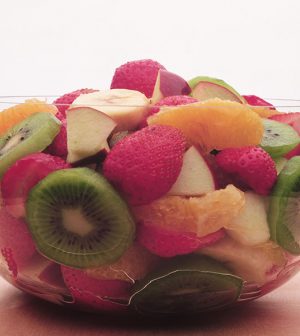- Could Your Grocery Store Meat Be Causing Recurring UTIs?
- Are You Making This Expensive Thermostat Error This Winter?
- Recognizing the Signs of Hypothyroidism
- 10 Strategies to Overcome Insomnia
- Could Artificial Sweeteners Be Aging the Brain Faster?
- Techniques for Soothing Your Nervous System
- Does the Water in Your House Smell Funny? Here’s Why
- Can a Daily Dose of Apple Cider Vinegar Actually Aid Weight Loss?
- 6 Health Beverages That Can Actually Spike Your Blood Sugar
- Treatment Options for Social Anxiety Disorder
Foods to Lower Your Cholesterol Count

It’s not always possible to lower cholesterol through diet alone — sometimes there’s no way to override your DNA, and medication becomes a must.
But certain foods can be part of the plan to improve your numbers, to both lower low-density lipoprotein (LDL) cholesterol, the bad one, and raise your high-density lipoprotein (HDL), the good one.
First, choose foods with soluble fiber. Think of this type of fiber as a magnet, drawing cholesterol out of your body. Good sources are oats, oat bran and barley, along with beans, eggplant and okra. When used in recipes, these foods tend to take on the flavors of other ingredients, so be adventurous with recipe planning — and generous with herbs and spices.
Apples, grapes, strawberries and citrus fruits are good choices because of their pectin, a type of soluble fiber.
Next, go for foods with polyunsaturated fats. These include vegetable oils like canola, sunflower and safflower, as well as fatty fish like salmon, rich with omega-3 fatty acids, and most types of seeds and nuts.
Plant-based foods also contain substances called plant sterols and stanols, which help keep the body from absorbing cholesterol. Particularly good sources are Brussel sprouts, wheat germ and wheat bran, peanuts and almonds, and olive, sesame and canola oils.
In terms of foods to limit, talk to your doctor about your unique needs. High-cholesterol foods like shellfish and eggs aren’t as dangerous as once thought. The verdict is still out on the saturated fat found in meat, but some research has found that full-fat yogurt, milk and even cheese may be good for you.
The one type of fat to completely avoid is trans fat. The U.S. Food and Drug Administration banned its addition to foods in 2018, but because of extensions granted to some manufacturers, certain items could be on store shelves until January 2021. So keep checking the ingredients on any packaged foods you’re considering.
More information
The U.S. Centers for Disease Control and Prevention has more on cholesterol and how to protect heart health.
Source: HealthDay
Copyright © 2026 HealthDay. All rights reserved.










